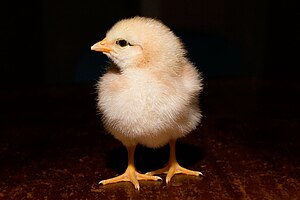Given the emergency of upgrading as soon as possible my German, I preferred to read
Lily Brett's book translated from English. Her first book that entered my life,
New York, was again a German translation, and I loved so much the style and the wording - always the right word at the right place - that I decided to write my own literary/travel journey. (still in process of conception)
The original English title is "
You Gotta Have Balls", the name of the restaurant that the 87 year old Edek, together with Zofia and Walentyna, the two Polish ladies, opened in New York. The German "Chuzpe" means "taking the risk of doing something against the all odds". The restaurant, opened with the "modest" - according to the standards of the Big Apple - contribution of 30,000 USD is getting an amazing success in a very short time, without using the tips and tricks of the PR and advertising, and without a professional and scholarly business plan. The strong point is an amazing range of meat-balls (vegetarian included), carefully prepared by the handsome Zofia, Edek's future wife. The key of success: simplicity, taking the risks because somebody have to, getting the best of life without thinking over and over again. this means being creatively "Chuzpe". In comparison, Ruth, its daughter - owner of a business of writing cards and letters -, is extremely cautious, reluctant, worried and insecure, despite the general status of wellbeing she is enjoying - a husband and good children, a good financial and professional situation. Without being faced by displacement and lost of the dear ones, as the generation of its father, Ruth - and the other women of her age appearing in the book - is facing a deep feeling of melancholy and sometimes inadequacy to the world. Taking a decision for a change is the result of careful scrutiny of risks and advantages, marketing study-wise, at the end of which it is most probably that I decision will not be taken. In exchange, the two Polish ladies widows and more than 60, Edek and Ruth met during a trip in Poland, decided to move in a new country, learning a new language and getting into the business of the meatballs (Klopse). It is a very interesting light and shadows vision, separating the two worlds and closing the Edek's world of the one of Ruth's children.
The dialogues are very natural and the words are, in general, used in the right dosage, as the plot of the story is very simple and covered by a good content Jewish story.
The book comprises various references to Brett's life, as sequencies about Australia, where she used to live before moving to NYC, the memories about Shoah and some subtle mentiones about Germany, where she was born. The novel's life cannot be strictly separated of the author's life and richer the author's life, more challenging the writing and the pleasure of reading.
PS: At the end of the book, there are a couple of recipes of "Klops", easy to prepare and tasty.





















